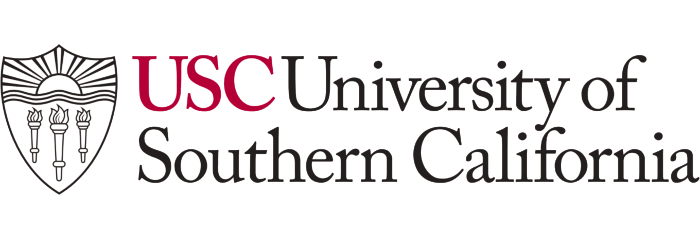2023 Best Online Master's Degrees in Chemical Engineering
ON THIS PAGE
Overview Requirements Courses Accreditation Careers FAQsAn online master's in chemical engineering is an interdisciplinary degree designed for students interested in both product development and the processes needed to design, operate, and maintain chemical plants. Students in this field explore a variety of topics — from thermodynamics to personnel management. A master of engineering is intended to further develop a student's existing engineering skills through technical management, analysis, and process development. This is in contrast to a Master of Science in Chemical Engineering, which is more focused on research and theory. Beyond chemical engineering, there are several other types of engineering degrees to choose from.
View our methodology for more details about our list or learn more about OnlineU.
List Of Accredited Online Chemical Engineering Schools
| School | Online Enrollment | Annual Tuition |
|---|---|---|
| Georgia Institute of Technology | ||
| University of Southern California | 6,641 | $58,195 |
| Lamar University | 6,150 | $18,622 |
| Villanova University | 2,660 | $55,280 |
| North Carolina State University | 2,298 | $29,220 |
| Texas Tech University | 1,811 | $19,260 |
| University of North Dakota | 1,500 | $15,895 |
| Kansas State University | 1,425 | $26,316 |
| Auburn University | 1,298 | $31,124 |
| Mississippi State University | 964 | $23,950 |
Georgia Institute of Technology
- Annual Tuition: $33,794
- Locations: Atlanta (GA)
- Accreditation: SACS COC
The Georgia Institute of Technology (Georgia Tech) is a public university that offers an online Professional Master's in Manufacturing Leadership - Chemical Manufacturing. This degree requires 30 credit hours, which is generally completed in two years while studying at a part-time pace.
Canvas is the main learning management system (LMS) used by Georgia Tech students, allowing them to complete their degree program online in a hybrid format, with both face-to-face and online schedule requirements. This degree is all about developing operational, leadership, and personnel management skills alongside the processes, technologies, and markets in chemical processing. The majority of the required credits are devoted to the core curriculum, including classes such as Manufacturing Reliability, Principles of Management for Engineers, and Production Planning and Control. Additionally, students are required to attend three visits on the Georgia Tech campus and complete a 12-week capstone project. Jobs for graduates may include process engineers or biomedical engineers.
University of Southern California
- Annual Tuition: $58,195
- Locations: Los Angeles (CA)
- Accreditation: WSCUC
The University of Southern California (USC) is a private institution with an online Master of Science in Chemical Engineering, which requires the completion of 28 credit hours. Typically, online students graduate within two years while studying full time.
All online courses at USC are delivered through the Blackboard LMS, which allows students to study 100% online and at their own pace. This fully remote degree focuses on a few key areas of chemical engineering, such as thermodynamics, kinetics, transport phenomena, and applied mathematics, as well as physical and chemical transformations. Among the major requirements are Modeling and Analysis of Chemical Engineering Systems, Thermodynamics for Chemical Engineers, and Transport Processes. Upon graduation, students are often prepared to join public health agencies, pharmaceutical companies, and petrochemical plants.
Lamar University
- Annual Tuition: $18,622
- Locations: Beaumont (TX)
- Accreditation: SACS COC
Lamar University (LU) is a public university offering a Master of Engineering Management - Chemical Engineering that requires 30 credit hours. If studying full time, students can complete this degree online in around two years.
At LU, students use the Blackboard LMS to access their core online courses, which are taught 100% online, allowing students to maintain a flexible schedule. This is a non-thesis program that's designed to develop both managerial skills and advanced technical skills, including a deep exploration of chemical process systems, petrochemicals, and nanotechnology. Some required courses include Project Management, Financial and Managerial Accounting Foundations, and Engineering Management. An internship option is also available. Graduates most often pursue careers as chemical engineers.
Villanova University
- Annual Tuition: $55,280
- Locations: Villanova (PA)
- Accreditation: MSCHE
Villanova University (VU) is a private university offering an online Master of Science in Chemical Engineering that requires at least 30 credit hours. Typically, full-time students complete this program in two years or less. The majority of students in this program (73%) study on a part-time schedule. VU also offers a similar Master of Science in Biochemical Engineering, which focuses on biopharmaceutical production and development.
At VU, students use Blackboard for their remote courses, which they complete entirely online, with the option of synchronous or asynchronous course delivery. The chemical engineering program contains a core of engineering fundamentals, including the technical processes and communication skills needed to advance a student's career. Required classes include Thermodynamics, Transport Phenomena, and Chemical Kinetics and Catalysis. Full-time students who receive financial aid are also required to complete a thesis and research project. Alumni of either the chemical or biochemical engineering program may explore roles at chemical and pharmaceutical manufacturing companies.
North Carolina State University
- Annual Tuition: $29,220
- Locations: Raleigh (NC)
- Accreditation: SACS COC
North Carolina State University (NCSU) is a public institution with a Master of Science in Chemical Engineering requiring 30 credit hours. Students studying full time are likely to complete the degree in less than two years. For a more engineering-focused program, you may want to look into NCSU's Master of Engineering - Chemical Engineering.
NCSU uses Moodle as the chosen LMS to deliver online coursework to students. This software allows them to finish their degrees completely online, with courses delivered in either synchronous or asynchronous formats (depending on the class). This non-thesis curriculum is designed to develop students' understanding of the theory and practice of chemistry along with the engineering techniques involved therein. Required classes include Chemical Engineering Process Modeling, Thermodynamics, and Transport Phenomena. Those who graduate from either program listed above may be eligible for engineering roles in a variety of industries, including textiles and pharmaceuticals.
Overview of Online Chemical Engineering Master’s Programs
The goal of this master's degree is to add specialist knowledge to your toolkit and potentially prepare you for management opportunities. It can also be a foundation for doctoral studies if you want to be an engineering researcher or professor.
Chemical engineering master's degrees usually require 30-32 credit hours. They can last one to two years depending on how many courses you take per term.
Program Curriculum
Most master's programs in chemical engineering have a broadly similar curriculum, because they're often trying to stay accredited (see the accreditation section for more information). You'll encounter advanced courses in chemistry and related scientific disciplines, such as physics and biology. Faculty also cover engineering methods, design processes, applied mathematics, and sometimes engineering management.
Admission Requirements
Most schools require a bachelor's degree in chemical engineering for admittance, often with a minimum 3.0-3.2 GPA. Graduate program faculty hit the ground running with advanced coursework, so program administrators want to ensure that you understand the fundamentals of chemical engineering before you matriculate. ABET-accredited programs may require that you earned your bachelor's degree from an ABET-accredited program.
You typically need to submit an admissions essay that describes your educational and professional goals. Your school may also ask for test scores from a graduate entrance exam, most commonly the GRE.
For more information about common application materials, check out our Guide to Applying to Online College or University.
Cost
The National Center for Education Statistics calculated an average cost of $19,792 per year for graduate degree tuition and fees in 2020. But of course there's wide variation among individual institutions within that calculation. In general, public schools are the most affordable as long as you qualify for in-state tuition. For-profit institutions are next, while nonprofit private schools tend to be the most expensive.
In general, public schools are the most affordable as long as you qualify for in-state tuition. For-profit institutions are next, while nonprofit private schools tend to be the most expensive.
No matter where you attend, it's best to apply for as much financial aid as possible. Gift aid, such as scholarships and grants, lowers the total amount you owe, which can potentially save you tens of thousands of dollars in debt.
Online Learning
Most online master's programs feature asynchronous courses with no live class meetings. Instead, you sign in to a learning management system to watch recorded lectures, post in discussion forums, and download readings and assignments. You still need to turn in work on a regular schedule. Some courses may have occasional live components, but this is less common.
If you live far from your school, you may be able to arrange to do any laboratory work at a local institution, such as a community college. You might also receive an at-home lab kit for less complex projects.
Common Courses in a Chemical Engineering Master's Program
You'll typically take 10-12 courses during a master's program: five to six required classes and the same number of electives to help you specialize in a focus area. Below, we've listed some examples of courses you'll likely encounter during your graduate studies in chemical engineering.
Chemical Reaction Engineering
This course examines the behavior of assorted chemical agents when introduced to one another. Enrollees use laboratory equipment to conduct reaction experiments, along with software to model complication reactions on a grander scale.
Green Chemical Engineering
Students learn environmentally conscious methods for conducting their work. Faculty walk them through the process of green design, implementation, and maintenance in chemical manufacturing processes.
Thermodynamics
The class covers the effects of heat and energy on biochemical properties and processes. Students learn to model and estimate thermodynamic properties and calculate physical and chemical equilibria.
Transport Phenomena
Faculty teach how objects move through various liquid and gaseous media. Students analyze multiple variables and apply the principles of energy, mass, and momentum to calculate transport rates.
Accreditation
It's important to attend an accredited institution because these schools have passed an independent review to ensure that their academic quality and student outcomes meet specific benchmarks. It may also be required to qualify for financial aid and industry certification.
It's important to attend an accredited institution because these schools have passed an independent review to ensure that their academic quality and student outcomes meet specific benchmarks.
At the program level, administrators commonly try to meet the accreditation criteria that the Accrediting Board for Engineering and Technology (ABET) sets. ABET is the most influential voice in programmatic accreditation for engineering. It's not necessary to graduate from an ABET-approved program, but many employers prefer to hire candidates who have done so, because they trust ABET to accredit only high-quality programs.
Careers
Faculty design chemical engineering degrees to educate and train chemical engineers, but you aren't necessarily limited to this career. Master's-level expertise in chemical engineering might qualify you for a few different engineering disciplines, as long as you take relevant electives and demonstrate knowledge of the specialty during interviews. We've listed some potential career options below, with pay and job outlook data drawn from the Bureau of Labor Statistics.
These engineers design and test new chemical processes to use in a variety of industries.
Environmental engineers create and implement public-works projects to safeguard human, animal, and plant health.
These professionals help ensure workplace safety through technological and procedural means.
Materials engineers often complement chemical engineers' work by designing and testing solid-state materials for use in a number of fields.
FAQs About Online Chemical Engineering Master’s Programs
Are Master's in Chemical Engineering Hard?
These can be difficult degree programs that call for lots of applied math, chemistry, biology, and physics. But it's a safe assumption that you already have a strong foundation in these disciplines if you're applying for this degree, because most schools only consider candidates who hold a bachelor's in chemical engineering.
Is a Master's in Chemical Engineering Worth It?
There's no objective answer to this question, because your circumstances and priorities differ from everyone else's. Based solely on pay and job security, chemical engineering is a good bet: Chemical engineers make much more than twice the median salary for all U.S. jobs combined, and the field is growing slightly faster than average. There's no publicly available data on whether a master's in chemical engineering gives a salary boost, but in general, advanced degrees tend to confer higher wages and lower unemployment rates.
Can You Complete a Master's in Chemical Engineering Online?
Yes, many colleges offer online master's degrees in chemical engineering. The coursework is fully online and asynchronous for most of these programs, so they tend to be flexible and convenient. They might require some in-person laboratory work that can't be done using at-home kits, so talk to admissions officers about this if it's a potential problem.
Are Online Engineering Master's Degrees Respected?
Millions of Americans have landed jobs after graduating from online programs. Hiring managers tend to respect online degrees just as much as traditional on-campus education, assuming they even know that a candidate studied online — most schools issue identical diplomas to all students with no mention of the learning delivery mode. The most important factor is attending an accredited school.
Related Articles
2023 Best Master's in Organizational Leadership Online Programs
Discover the best online master's organizational leadership degrees for 2023, ranked based on tuition rates and alumni salaries.
By OnlineU Staff Writers | 12/23/2022





